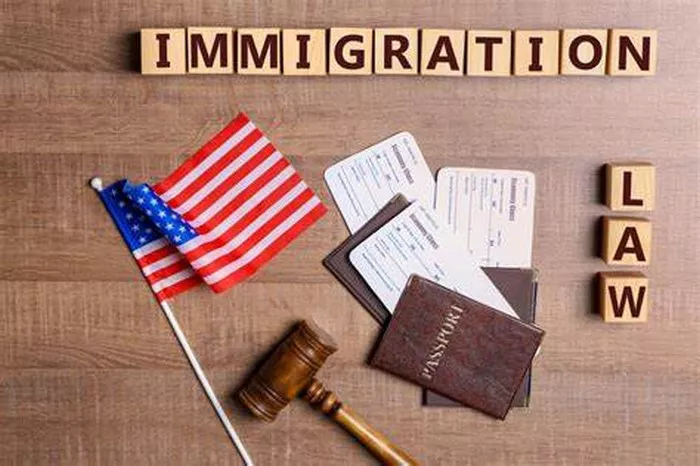In an era of globalization, immigration law plays a pivotal role in shaping the movement of individuals across borders. From seeking refuge from persecution to pursuing better economic opportunities, people migrate for a myriad of reasons. Immigration law encompasses a vast array of legal statutes, regulations, and policies that govern the entry, stay, and status of non-citizens within a country. This article aims to provide a comprehensive overview of immigration law, examining its principles, processes, and challenges.
The Foundation of Immigration Law
At its core, immigration law is founded on the sovereignty of nations to control their borders and regulate the admission of foreign nationals. It establishes the criteria for entering and remaining in a country, outlines the rights and responsibilities of immigrants, and delineates the procedures for obtaining citizenship or legal residency. Immigration law is shaped by a combination of domestic legislation, international agreements, and judicial interpretations, reflecting the socio-political dynamics and values of each nation.
Key Concepts in Immigration Law
1. Visa Categories: Immigration laws typically classify visas into different categories based on the purpose of travel, such as tourist visas, student visas, work visas, and refugee visas. Each category has specific eligibility requirements and limitations on duration and activities permitted within the host country.
2. Admissibility Criteria: Countries establish criteria for determining the admissibility of foreign nationals, including factors such as criminal history, health status, security risks, and ties to the host country. Admissibility decisions are often made by immigration officers at ports of entry or through visa application processes.
3. Immigration Status: Immigrants may have different legal statuses within a country, ranging from temporary visitors to permanent residents or citizens. Each status confers specific rights and obligations, such as the right to work, access healthcare, and vote in elections.
4. Naturalization and Citizenship: Immigration laws govern the process of acquiring citizenship through naturalization, which typically involves meeting residency requirements, passing language and civics tests, and demonstrating good moral character. Citizenship grants individuals the full rights and privileges of nationals, including the ability to travel with a passport and participate in the political process.
The Immigration Process
Navigating the immigration process can be a daunting task, requiring applicants to comply with numerous requirements, submit extensive documentation, and undergo rigorous screening procedures. The process generally involves the following steps:
1. Visa Application: Prospective immigrants must apply for the appropriate visa category based on their intended purpose of travel. This often entails completing application forms, providing supporting documents (such as passports, photographs, and financial statements), and paying application fees.
2. Admissibility Screening: Immigration authorities assess the eligibility and admissibility of applicants by conducting background checks, verifying information provided, and evaluating potential security risks. This may involve interviews, biometric data collection, and medical examinations.
3. Approval and Entry: Upon approval of their visa application, immigrants are issued a visa document authorizing entry into the host country. They must present this document to immigration officers at ports of entry, undergo inspection, and comply with any additional entry requirements (such as customs declarations or quarantine measures).
4. Adjustment of Status: In some cases, immigrants may seek to adjust their status from temporary to permanent residency or citizenship while residing in the host country. This process typically involves meeting specific eligibility criteria, filing petitions or applications, and attending interviews with immigration officials.
5. Appeals and Waivers: Individuals who are denied visas or face deportation orders may have recourse to appeal processes or seek waivers of inadmissibility based on humanitarian, family reunification, or other compelling grounds. These proceedings often involve administrative or judicial review of immigration decisions.
Challenges and Controversies
Despite its importance, immigration law is fraught with challenges and controversies that reflect broader social, economic, and political debates. Some of the key issues include:
1. Border Security: Ensuring border security while facilitating legitimate travel and trade is a perennial challenge for immigration authorities. Debates over border enforcement measures, such as walls, fences, and surveillance technologies, raise questions about effectiveness, human rights, and resource allocation.
2. Immigrant Rights: Advocates and activists often raise concerns about the treatment of immigrants and asylum seekers, including issues such as detention conditions, family separation, and access to due process. Calls for immigration reform seek to address these concerns and create a more humane and equitable system.
3. Labor Migration: Economic factors drive much of the global movement of people, as individuals seek employment opportunities and businesses recruit skilled workers from abroad. Balancing the interests of domestic workers, foreign labor markets, and migrant rights presents complex policy challenges for governments.
4. Refugee Protection: The plight of refugees fleeing conflict, persecution, and environmental disasters highlights the importance of international protection mechanisms and humanitarian assistance. Refugee law intersects with immigration law, raising questions about asylum processes, resettlement programs, and burden-sharing among countries.
5. Integration and Diversity: Successful immigration policies promote the integration of newcomers into host societies while respecting cultural diversity and fostering social cohesion. Issues such as language acquisition, education, employment, and social services play crucial roles in facilitating immigrant integration and inclusion.
Conclusion
Immigration law occupies a central position in shaping the dynamics of global migration and influencing the lives of millions of people around the world. As societies become increasingly interconnected and diverse, understanding the principles, processes, and challenges of immigration law is essential for policymakers, practitioners, and the general public alike. By promoting dialogue, cooperation, and respect for human rights, immigration law can contribute to building more inclusive and resilient societies in an ever-changing world.


